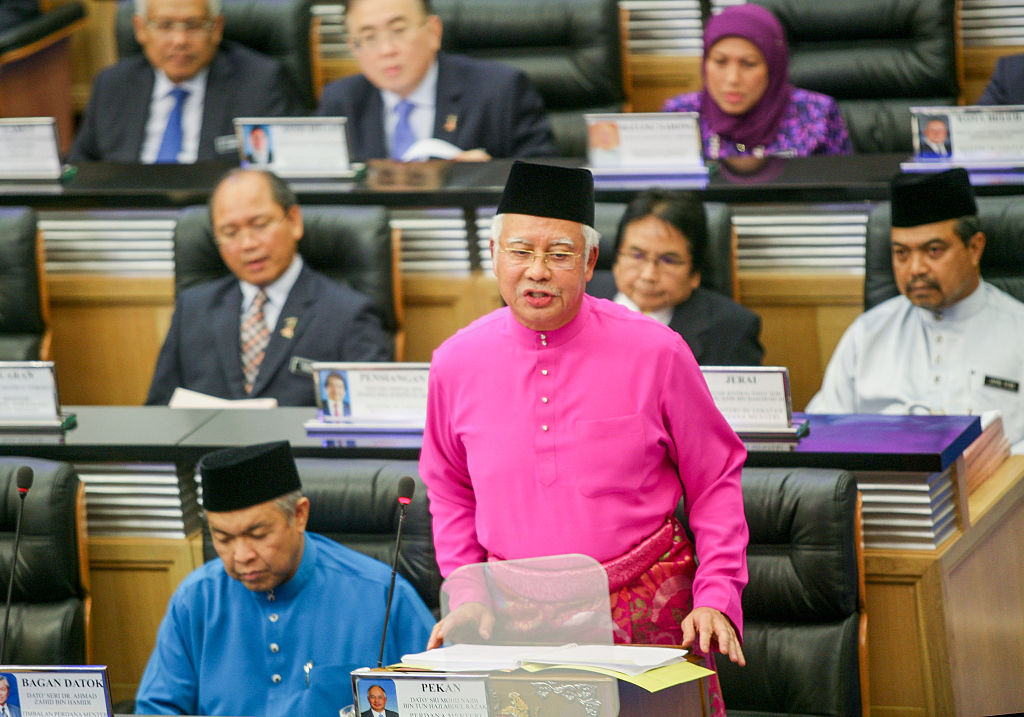While Singapore's Select Committee is currently hearing evidence from experts and members of the public on the best way to tackle "deliberate online falsehoods", Malaysia has gone one step further.
On March 26, the Anti-Fake News Bill was tabled by Minister in the Prime Minister's Department Datuk Seri Azalina Othman Said in the Dewan Rakyat (Parliament).
It reads:
"As technology advances with time, the dissemination of fake news becomes a global concern and more serious in that it affects the public.
With the proposed Act, it is hoped that the public will be more responsible and cautious in sharing news and information."
Tough punishment
The Bill contains harsh penalties for anyone "knowingly creating, offering, publishing, printing, distributing, circulating or disseminating" fake news.
And yes, the actual term "fake news" is used in the Bill, instead of Singapore's preferred term of "deliberate online falsehoods."
Punishment entails:
- A fine not exceeding RM 500,000 (S$168,210).
- A prison term not exceeding 10 years.
- Or both.
In the case of a "continuing offence", a further fine of RM 3,000 (S$1,009) may be levied for every day during which the offence continues after conviction.
The Court can also order the person convicted of the offence to apologise to the person "affected" by the offence, in a manner determined by the Court.
[related_story]
Outside Malaysia
The Bill will not stop at cracking down on Fake News within Malaysia's borders.
It will also target people out of it, as long as the person "affected" by the offence is a Malaysian citizen.
Clause 3 states that the Bill will regard any offence committed by any person, regardless of nationality or place it occurred, as if it was committed in Malaysia.
Anti fake news bill on the table of MPs. 500k fine and / or 10 years max jail sentence. This is an attack on the press and an attempt to instil fear among the rakyat before GE14. pic.twitter.com/Rh40tBPWof
— Ong Kian Ming 🇲🇾 (@imokman) March 26, 2018
Some examples
In addition, the Bill includes a number of examples it says are illustrations of Fake News.
These include spreading false information online unknowingly, impersonating official websites, and making announcements with no intention of following through.
What constitutes fake news? Here are the examples listed in the bill. pic.twitter.com/tlX73G1MG2
— Sumisha Naidu (@sumishanaidu) March 26, 2018
Interestingly, Example G is reminiscent of the 1MDB scandal.
The U.S. and several other countries are investigating allegations of cross-border embezzlement and money laundering at 1MDB.
The U.S. Justice Department says at least $4.5 billion was stolen from 1MDB by associates of Najib. On his part, Najib has denied the allegations and maintained that the funds in his account were donated to him by the Saudi Arabian government.
Political impact
The Bill was opposed by members of the opposition coalition Pakatan Harapan (Pact of Hope or PH), who claimed that it could be used to silence criticism of the ruling Barisan Nasional coalition.
Parti Keadilan Rakyat (PKR) vice-president Nurul Izzah Anwar said that the Bill justified suspicions that the law was a way for the government to silence dissent. She said:
"The penalty is extremely over the top... an overkill."
N Surendran, another PKR MP said that the Bill was oppressive and possible unconstitutional, as its definition for Fake News was too broad. He said:
"This definition is so excessively wide that it will lead to a paralysis of participatory democracy in our country in what would be the biggest threat to democracy since our independence. Healthy and open public discourse will come to an end."
However on their part, the government has vowed that the Bill will not threaten freedom of speech.
In an FAQ released on March 26, it said that:
"None of the laws that are drafted and passed by Parliament are intended to restrict the right to freedom of speech and expression as enshrined in the Federal Constitution.
This proposed Bill is intended to protect the public from the wave of fake news and at the same time ensure the right to freedom of speech and expression under the Federal Constitution is respected."
The Bill is expected to pass Parliament fairly easily, given that Barisan Nasional controls the lower house.
Related story:
Top image by Mohd Samsul Mohd Said/Getty Images.
Here’s a totally unrelated but equally interesting story:
If you like what you read, follow us on Facebook, Instagram, Twitter and Telegram to get the latest updates.
